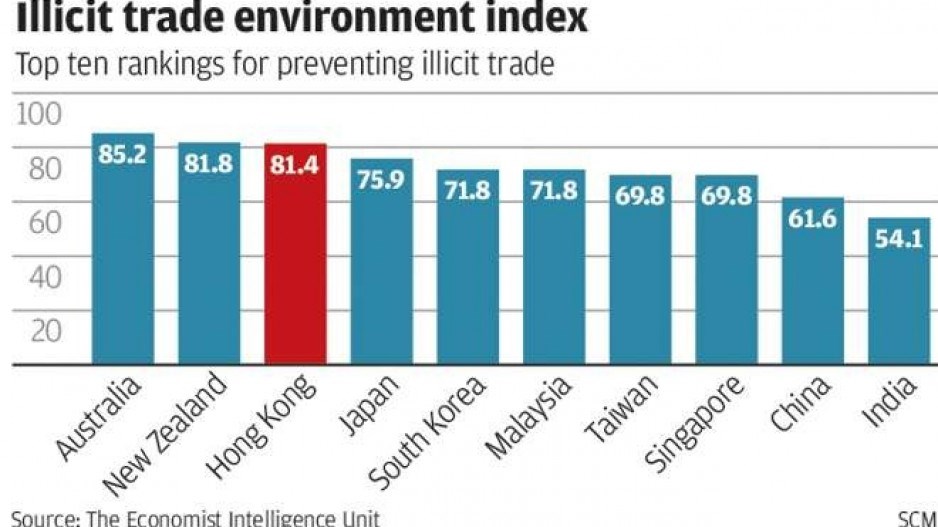Hong Kong has ranked third among 17 Asia-Pacific economies for its efforts to combat illicit trade, according to a new study, as a researcher warned of an increasing trend of fake goods being used to fund terrorism.
China, known for producing huge volumes of counterfeit goods, fared better than expected at ninth place, only one place behind Singapore which was tied with Taiwan at seventh, due to its improvements in intellectual property protection and transparency.
Australia and New Zealand topped the list followed by Hong Kong, according to the Illicit Trade Environment Index created by the Economist Intelligence Unit (EIU). The index was commissioned by the European Chamber of Commerce in Singapore (EuroCham).
Looking at four policy categories covering intellectual property, transparency and trade, customs environment and supply and demand, the EIU evaluated the extent to which the surveyed economies enable illicit trade.
The index showed the bottom half of the rankings was comprised mainly of developing economies with Myanmar performing the worst, behind Laos and Cambodia.
Chris Clague, the report’s author, said Hong Kong was once a hub for trade in counterfeit goods in the 90s, but had shown great improvements in policies and institutions designed to combat illicit trade over the past decade, such as taxation initiatives to curb demand and supply of illicit goods.
“Hong Kong does well in terms of its cooperation with stakeholders and the overall customs environment as it has stepped up its efforts to crack down on illicit goods,” he said.
Clague warned there was a rising trend of illicit trade providing funds for transnational crime syndicates and terrorist financing, posing a threat to the security of nations.
“There’s sufficient anecdotal evidence to suggest that the volume of counterfeit and mis-declared goods, drugs, weapons, and other types of illicit trade moving acrossing borders has been increasing and will continue to do so,” he said.
A key recommendation suggested by a report from KPMG, published alongside the study, was to establish an anti-illicit trade working group comprising the regulatory authorities, the private and the public sectors for the fight against illicit trade.
“What we are seeking to establish is a mutual collaboration between all stakeholders, meaning the government, brand owners, intermediaries such as logistic providers,” Simon Jim, chairman of intellectual property rights committee of EuroCham, said.
Jim noted that Hong Kong already has a formal entity to combat illicit trade, namely the
Intellectual Property Rights Protection Alliance comprising customs officials and senior brand representatives.




